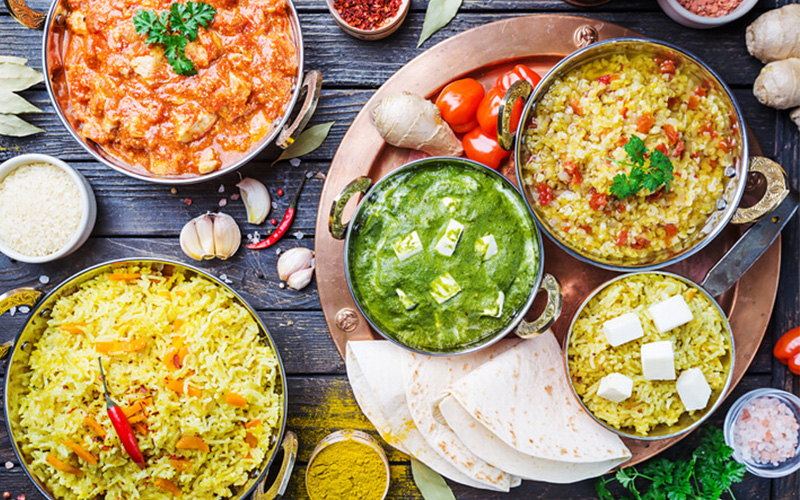Wellness and healthy eating have been on the rise for the last few years. There are so many diets, supplements, meal programs, and no-no’s that it’s pretty hard to keep up.
Nowadays, from businessmen to professional athletes, everyone is seeking to have the healthiest and most sustainable diet possible.
Wilson Chandler might not be one of the best NBA centers ever, but his statement to come out as vegan paved the way for other athletes to start exploring new diets.
One diet or, more precisely, lifestyle has been around for centuries and can give you the health benefits just as great as an expensive new-age plan.
We’re talking about the yogic diet. Yogi food is a part of a complete health path. Together with yoga and meditation, it keeps the body, mind, and soul healthy.
Here’s how a yogic diet can make you feel better.
In a nutshell
In the yoga tradition, healthy and balanced food is just as important to a person’s wellbeing as yoga practice and meditation.
It’s believed that what we eat is essential to our physical and mental health.
The vast majority of yogis choose a balanced vegetarian diet and argue that it can prevent heart, kidney, and other diseases.
Yogis also believe that overindulging leads to lethargy while undereating will not provide enough nourishment. We shouldn’t measure the food in cups or grams, but instead, we need to listen to our body, and we’ll know when we’re full.
Philosophy of yoga nutrition
According to the yoga philosophy, food is divided into three categories based on their energy. These categories are called gunas and are sattva, rajas, and tamas.
Let’s look at each of these categories individually and what food each of them include.
Sattva
This energy symbolizes purity, cleanliness, and clarity. The foods that belong to this category are the most suitable for those practicing yoga and mindfulness.
Sattva food feeds the body, gives it energy, but at the same time calms the mind and helps to reach harmony.
This food group includes grains, fresh vegetables, legumes, fruit, whole-meal baked goods, dairy, nuts, honey, and herbal tea.
Sattva should be the main food group for everyone.
Rajas
Rajas symbolize passion, action, and anxiety. This food group brings the body and mind out of balance, and even though you’re supposed to be nourishing the body, you’re actually depleting it of energy.
This food group includes various hot spices, coffee, tea, salt, chocolate, onions, garlic, and the food that is too hot, too spicy, too salty, or too bitter.
It’s recommended to moderate the intake of these foods.
Tamas
Tamas energy symbolizes laziness, fear, and ignorance. Foods from this group are useless for the body and the mind. They suppress energy, encourage greed, jealousy and can cause various diseases and illness.
This food group includes meat, alcohol, fermented, fried in fat, chemically affected food, over-ripened fruit.
According to yogis, you should eliminate these foods completely.
Health benefits
The yogic diet nourishes the entire body and all of its systems and provides multiple health benefits.
Healthier digestion
The balanced yogic vegetarian or vegan diet improves digestion by promoting a healthy gut microbiome.
All the regularly consumed fruit, vegetables, whole grains, and fewer or no heavy oils, meats, and spices allow the gut flora to be healthy.
Better metabolism
This diet speeds up and boosts metabolism, which means that vegetarians and vegans have a higher resting metabolic rate and burn more calories even without rigorous activities than other and less healthy diets.
More energy
It might seem that cutting out meat will decrease the energy, but it’s the opposite, according to yogis.
Foods like nuts, whole grains, and legumes have a low glycemic index, which means they’re digested more slowly, providing your body with a steady stream of energy.
These whole foods are also nutrient-dense, fueling your cells with the micronutrients they need.
Chronic disease prevention
Yogis claim (and have a few studies to back them!) that people who follow a yogic diet have a lower risk of heart disease and other chronic illnesses such as diabetes or cancer. That’s because the food includes high amounts of antioxidant-rich foods like fruit and veggies.
Mood booster
Yes, the food we eat affects our mood immensely, and the yogic diet supports the gut-brain connection.
What you eat impacts emotion and mood, so including healthy foods like fruit and veggies will reduce the risk of depression and anxiety.
These are the reasons why you should consider a yogic diet. And, with the pandemic and the overall stress that we have been enduring this past year, it’s recommended to look out for new diets that stimulate wellbeing.



